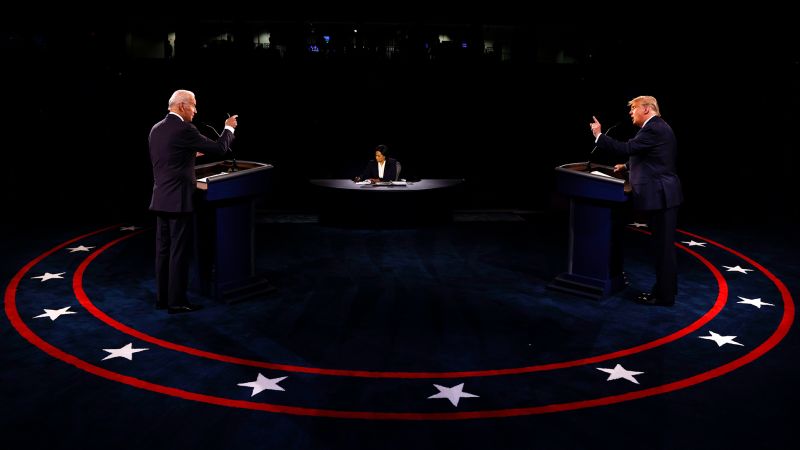As the Commission on Presidential Debates awaits official confirmation from both Joe Biden and President Donald Trump regarding their participation in the upcoming debates, co-chair Frank Fahrenkopf has stated that neither party has reached out to the commission yet. It is anticipated that this will not happen until after both of their respective Conventions have concluded. The key date to look out for is September 6, which is the last day that any state decides who qualifies for the ballot. This will be a crucial turning point as it will determine which candidates have met the requirement of being on enough ballots to potentially secure 270 electoral votes.
The uncertainty surrounding the Presidential debates is causing speculation as to when exactly they will take place. Traditionally, these debates have been highly anticipated events that allow voters to hear directly from the candidates and assess their policies and positions. However, the ongoing COVID-19 pandemic has raised concerns about the safety and logistics of holding in-person debates. Additionally, the timing of the debates is crucial as they could potentially sway undecided voters and influence the outcome of the election. As the nation grapples with a contentious political climate, the debates serve as a crucial opportunity for transparency and accountability in the electoral process.
The decision to participate in the debates is of paramount importance for both Biden and Trump, as they seek to present their platforms to the American public. However, the lack of communication with the Commission on Presidential Debates suggests that the candidates are waiting for the right moment to announce their plans. With the deadline for ballot qualification approaching, the stakes are high for both parties to secure the necessary electoral votes. The upcoming debates could prove to be a pivotal moment in the election, as voters evaluate the candidates’ performances and make their final decisions based on their exchanges.
The logistical challenges of organizing the Presidential debates in the midst of a global pandemic have added an additional layer of complexity to the planning process. Ensuring the safety of the candidates, moderators, and staff involved in the debates will be a top priority, as public health concerns remain a pressing issue. Additionally, the format of the debates may need to be adjusted to accommodate social distancing guidelines and remote participation options. Despite these challenges, the Commission on Presidential Debates is committed to providing a platform for the candidates to engage in meaningful discussions and present their visions for the future of the country.
The anticipation surrounding the Presidential debates reflects the heightened political climate leading up to the election. With both candidates vying for the highest office in the land, the debates offer a rare opportunity for voters to witness firsthand the differences between the candidates and their policy proposals. As the nation grapples with a range of pressing issues, including racial injustice, economic uncertainty, and the ongoing pandemic, the debates serve as a critical forum for the candidates to address these concerns and articulate their plans for addressing them. The outcome of the debates could have a significant impact on voter perceptions and ultimately influence the result of the election.
In conclusion, the timing and format of the upcoming Presidential debates remain uncertain as both Biden and Trump have yet to officially confirm their participation. The decision to participate will be integral to the candidates’ campaign strategies as they seek to make their case to the American public. With the deadline for ballot qualification approaching, the stakes are high for both parties to secure the necessary electoral votes. Despite the challenges posed by the COVID-19 pandemic, the Commission on Presidential Debates is committed to providing a platform for the candidates to engage in substantive discussions and present their policies to voters. The debates represent a critical juncture in the election process, and the outcome could have a significant impact on voter perceptions and the final result on Election Day.













